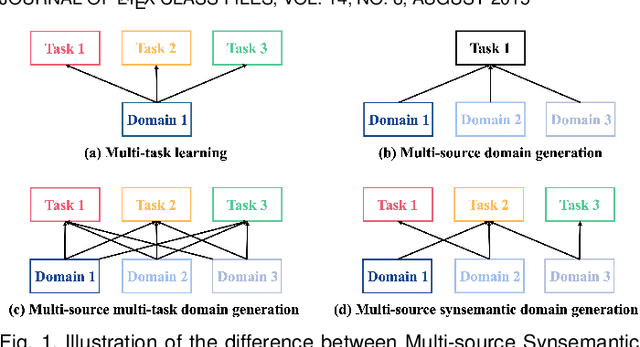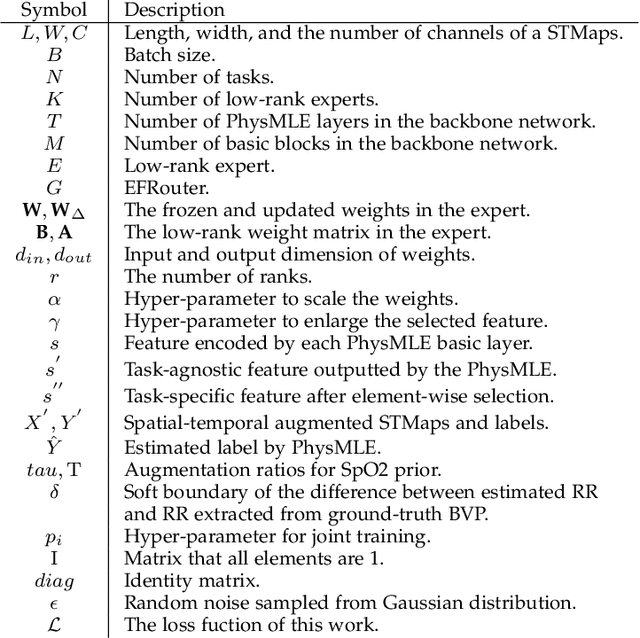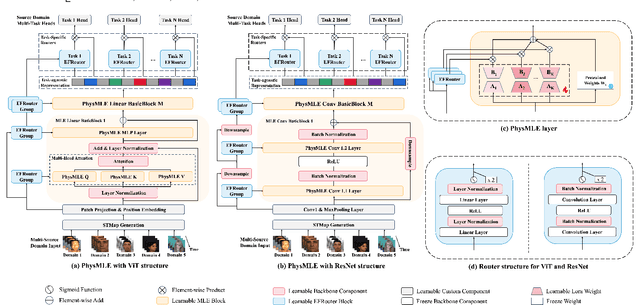PhysMLE: Generalizable and Priors-Inclusive Multi-task Remote Physiological Measurement
Paper and Code
May 10, 2024



Remote photoplethysmography (rPPG) has been widely applied to measure heart rate from face videos. To increase the generalizability of the algorithms, domain generalization (DG) attracted increasing attention in rPPG. However, when rPPG is extended to simultaneously measure more vital signs (e.g., respiration and blood oxygen saturation), achieving generalizability brings new challenges. Although partial features shared among different physiological signals can benefit multi-task learning, the sparse and imbalanced target label space brings the seesaw effect over task-specific feature learning. To resolve this problem, we designed an end-to-end Mixture of Low-rank Experts for multi-task remote Physiological measurement (PhysMLE), which is based on multiple low-rank experts with a novel router mechanism, thereby enabling the model to adeptly handle both specifications and correlations within tasks. Additionally, we introduced prior knowledge from physiology among tasks to overcome the imbalance of label space under real-world multi-task physiological measurement. For fair and comprehensive evaluations, this paper proposed a large-scale multi-task generalization benchmark, named Multi-Source Synsemantic Domain Generalization (MSSDG) protocol. Extensive experiments with MSSDG and intra-dataset have shown the effectiveness and efficiency of PhysMLE. In addition, a new dataset was collected and made publicly available to meet the needs of the MSSDG.
 Add to Chrome
Add to Chrome Add to Firefox
Add to Firefox Add to Edge
Add to Edge